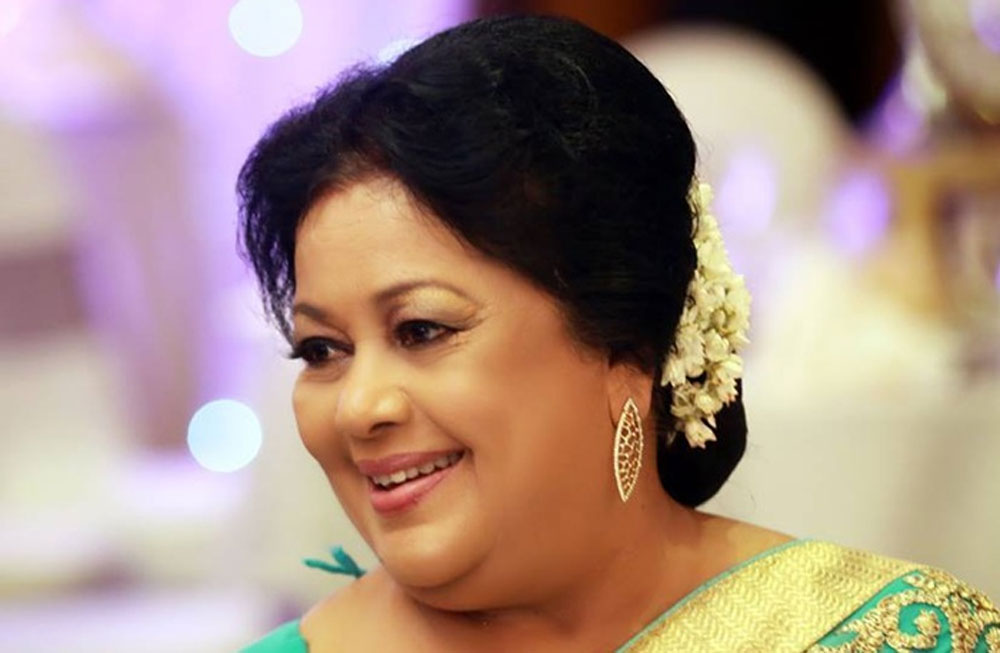Sri Lanka is mourning the loss of a cinematic legend.
Malini Fonseka, revered across generations as the “Queen of Sri Lankan Cinema,” passed away this morning at the age of 76 while receiving treatment at a private hospital in Colombo. Her death marks the end of an era in Sri Lankan arts and cinema, with tributes pouring in from across the country and beyond for a career that spanned more than seven decades.
Born to perform, Fonseka began her artistic journey on stage in 1963 and quickly rose to national prominence after winning Best Actress at the 1969 National State Drama Festival. Just five years earlier, she had taken the stage in the play Noratha Ratha, setting the foundation for what would become a groundbreaking career across theatre, cinema, and television.
Her entry into film came in 1968 with Punchi Baba, directed by Tissa Liyansooriya. That same year, she featured in Abudasse Kale, Dahasak Sithuwili, and Adarawanthayo, asserting her position as a rising star in Sinhala cinema. She went on to act in over 140 films, captivating audiences with unforgettable performances in Hingana Kolla (1980), Aradhana (1982), and Yasa Isuru (1983)—all of which earned her Sarasaviya Best Actress Awards.
Fonseka also took Sri Lankan cinema to international stages, notably co-starring with Indian Tamil cinema legend Sivaji Ganesan in Pilot Premnath (1978). She was honoured with a Special Jury Award at the Moscow International Film Festival in 1975 and received further acclaim at the New Delhi Film Festival in 1977, becoming the first Sri Lankan actress to receive such global accolades.
Her talents were not confined to acting. Fonseka broke new ground as the first female teledrama director in Sri Lanka, directing and acting in Nirupamala. She went on to direct three films—Sasara Chetana (1984), Ahimsa (1987), and Sthree (1991). On the small screen, she remained a household name, winning the Sumathi Best Teledrama Actress Award for her roles in Pitagamkarayo and Kemmura, and delivering memorable performances in Manalada Puthe Kiri Dunne, Ambu Daruwo, and Sanasili Suwanda.
In 2010, her legacy was cemented globally when CNN named her among Asia’s 25 Greatest Film Actors of All Time.
Even in her later years, Fonseka continued to captivate audiences. In 2024, she appeared in the music video Eya Wasanthaya Nowe by Chapa Jayaruk, earning praise for her poignant performance and reaching a new generation of fans.
Beyond her artistic endeavours, Fonseka also served as a Member of Parliament, accepting the role in support of then-President Mahinda Rajapaksa. Her contribution to public life reflected her commitment to national service, both on and off the screen.
Fonseka's list of accolades is both long and distinguished. She received the Wishva Prasadhini Award from the President of Sri Lanka in 1996, alongside numerous Presidential Awards, OCIC Awards, and twelve consecutive Slim Nielsen People’s Awards. In 2003, she was celebrated at the BMICH in a grand felicitation ceremony titled Maliniye, attended by then-President Chandrika Bandaranaike Kumaratunga. In 2008, the Sri Lankan Consulate in Los Angeles hosted an event in her honour, and in 2019 she received the Janabhimani Honorary Award.
Malini Fonseka’s enduring presence in Sri Lankan arts has left a profound cultural legacy. Her voice, performances, and influence shaped not just the film industry, but the very identity of Sri Lankan creative expression.
She will be remembered not only for her extraordinary talent and groundbreaking achievements but also for her deep connection with audiences, which remained unshaken for more than half a century.
Funeral arrangements will be announced in due course.

Leave your comments
Login to post a comment
Post comment as a guest